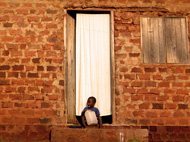Every summer, the International Human Rights Program (“IHRP”) at the Faculty of Law supports approximately 10-20 students wishing to pursue international human rights law fellowships with organizations around the world. Through logistical and financial support, the IHRP has been facilitating summer fellowships for over 30 years and has assisted over 500 students who have worked at governmental, non-governmental, and inter-governmental organizations in 70 different countries (including in Canada). Through IHRP fellowships, students have the opportunity to participate in human rights research, advocacy, and litigation often at the grassroots level. A list of past summer fellowships can be found here.
Below is some general information about IHRP summer fellowships. For detailed information and relevant forms, please visit the IHRP Fellowship page.
Who can Apply?
IHRP fellowships are open to all 1L and 2L J.D. students at the Faculty of Law, and to a limited number of LL.M. students. Third year J.D. students, S.J.D., and exchange students are ineligible.
Process
Students apply to become an IHRP summer fellow and must meet all associated deadlines and requirements. Application forms are available at the University of Toronto Law Career Network and completed applications must be submitted electronically through UTlawcareers.
Funding
IHRP fellowships are opportunities available to students with demonstrated financial need. Only those students with demonstrated financial need (i.e., those receiving federal and/or provincial government financial aid) are eligible to apply for an IHRP fellowship, which consists of a stipend to cover some of the fellowship expenses. This stipend aims to ensure that financially disadvantaged students also have access to these valuable opportunities. Students in joint-degree programs may be requested to seek financial support from their non-law faculty. Applications are judged and approved on merit alone, and the IHRP provides support throughout the application process and during the fellowship for all who are considered IHRP Fellows.
General Expectations
Fellows are required to attend mandatory pre-departure training session(s), including Safety Abroad Training, and will be required to sign various forms and waivers.
Fellows are required to complete short mid-summer and final reports, which are usually posted online, and are expected to facilitate contact between the IHRP Director and their partner organization.
Students are expected to attend at least one event to share their experiences with prospective interns, and may be asked to participate in other events, depending on the subject matter of their internship. (For firm-funded fellows, some sponsoring law firms may require interns to prepare a written report or oral presentation at the end of the summer as well.)
Geographic Limitations
The University of Toronto Faculty of Law, including the IHRP, cannot allow students to travel to dangerous areas while participating in University-sponsored programs. Fellows should consult the Government of Canada’s Department of Foreign Affairs and International Trade travel reports and warnings at http://www.voyage.gc.ca/countries_pays/menu-eng.asp before planning their fellowship. Under no circumstances can the IHRP approve fellowships to areas where DFAIT recommends “avoid[ing] all travel” (a.k.a. Level 4 zones), regardless of the funding source.

